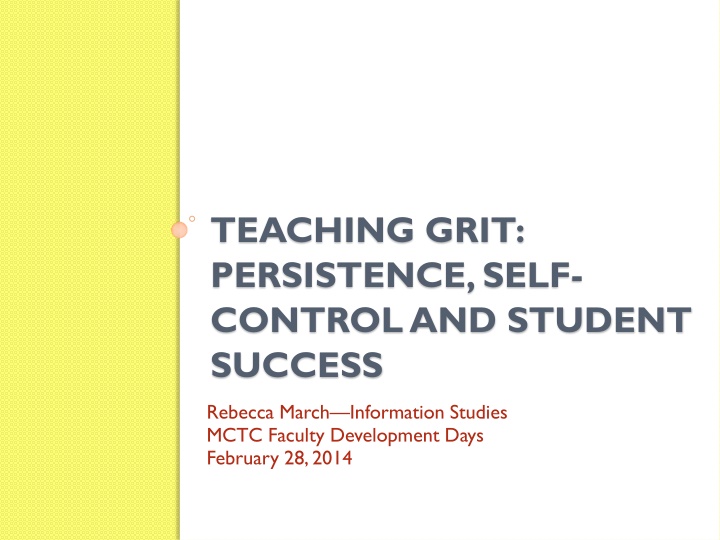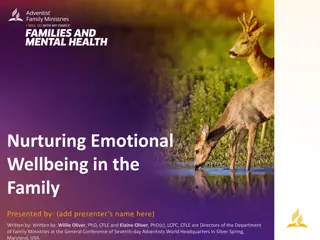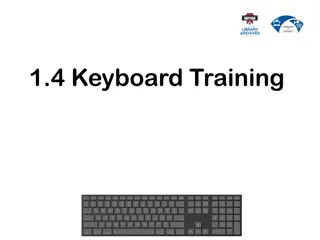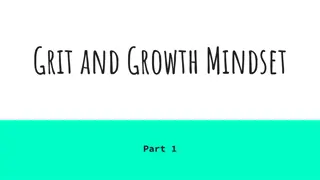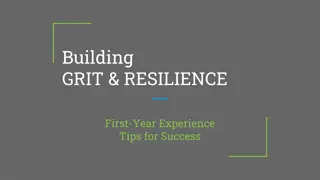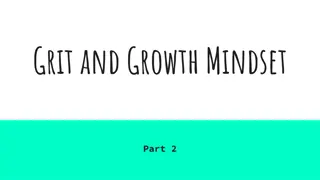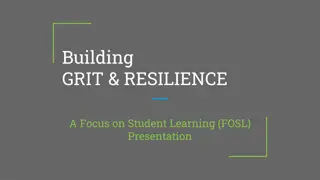Nurturing Grit: Keys to Student Success and Resilience
Exploring the concept of grit in education, this collection discusses the importance of persistence, self-control, and positive psychology in fostering student success. Experts highlight strategies to develop grit in children and address factors that may hinder its development, emphasizing the critical role of nurturing grit through a supportive environment. Insights from Angela Duckworth, Paul Tough, and Carol Dweck shed light on the traits associated with grit and its impact on achieving goals.
Download Presentation

Please find below an Image/Link to download the presentation.
The content on the website is provided AS IS for your information and personal use only. It may not be sold, licensed, or shared on other websites without obtaining consent from the author.If you encounter any issues during the download, it is possible that the publisher has removed the file from their server.
You are allowed to download the files provided on this website for personal or commercial use, subject to the condition that they are used lawfully. All files are the property of their respective owners.
The content on the website is provided AS IS for your information and personal use only. It may not be sold, licensed, or shared on other websites without obtaining consent from the author.
E N D
Presentation Transcript
TEACHING GRIT: PERSISTENCE, SELF- CONTROL AND STUDENT SUCCESS Rebecca March Information Studies MCTC Faculty Development Days February 28, 2014
Which directions do we give kids to get them in the direction of more grit? Experts to discuss Grit the secret ingredient to success GRIT Grittier competitors triumph the National Spelling Bee!
My interest in this Positive psychology Learned Optimism Outlooks can change Reframe reactions to negative events GRIT
Grit and Success What matters is whether we are able to help (students) develop these traits ---Paul Tough in How Children Succeed
What is Grit? A passionate commitment to a single mission and an unswerving dedication to achieve that mission Angela Duckworth Persistence Resilience Curiosity Conscientiousness Self-confidence Self -control
Who has grit? NATURE
Who doesnthave grit Kids Raised with: Chronic stress Adversity Lack of comforting Damaged executive functions Lack ability to: Concentrate Sit still Rebound Follow directions Deal with confusion and unpredictability Overcome instinctive reaction Hold several facts in head at once
Who does and doesnt have grit? NURTURE
Who doesnt have grit.. Kids that are overpraised! Shorter task persistence More checking in with teacher Answers have intonation of questions
The view you adopt for yourself profoundly affects the way you lead your life. --Carol Dweck, Mindset: the New Psychology of Success Fixed Mindset Intelligence is fixed Personality is fixed Born with it Unchangeable Growth Mindset Intelligence malleable Personality malleable Traits can change and be developed
Learning is hard. True, learning is fun, exhilarating and gratifying, but it is also daunting, exhausting, and sometimes discouraging. Angela Duckworth FIXED GROWTH ABILITY Needs to be proven; ability just there, can t be developed Only interested in feedback about ability; not interested in suggestions for change or growth Only likes safe, sure topics; motivated by goals Ability can be developed through learning FEEDBACK Most interested in feedback that will aid learning; suggestions for growth appreciated LEARNING Likes it when things get more challenging; motivated by mastery
Changing Mindsets DEVELOPING GRIT
Calibrated Meanness!!! Take them seriously Believe in their abilities (and get them to believe) Challenge them to improve themselves
Take them seriously Check in Ask questions Help with clarity Help them prepare Self-authoring
Believe in their abilities CHALLENGE MINDSETS! What is intelligence? What is success? What is thinking?
Teach them to fail. Teach them to wonder Take responsibility Productive persistence Permission to wonder
What do you do to foster grit in the classroom? Let s talk
THANKS FOR JOINING THE DISCUSSION TODAY!
